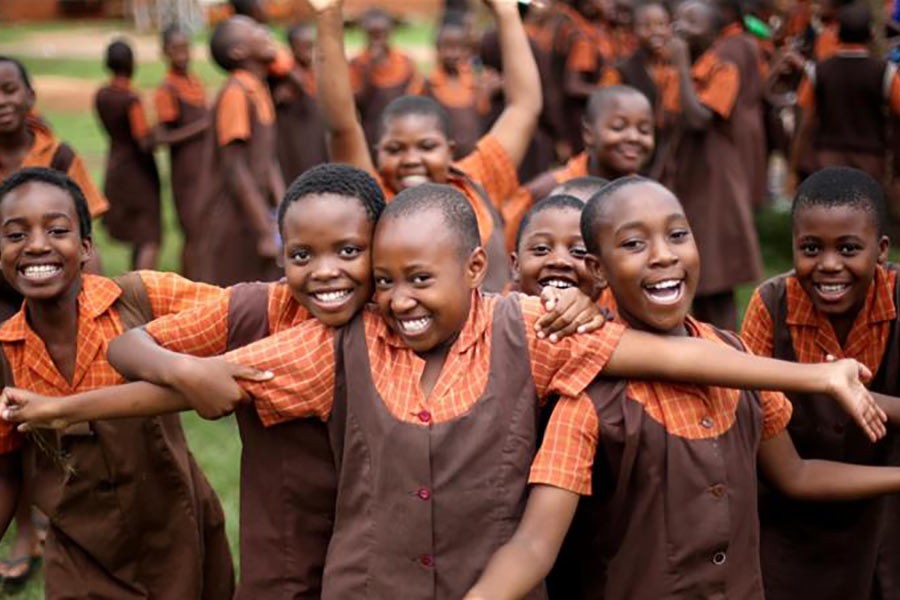Education gives young people the tools they need - from cognitive and social skills to self-confidence - to succeed throughout their lives. For many African countries, including my home country of Zambia, burgeoning youth populations make delivering high-quality education to all particularly urgent. But success will be possible only with a sharp focus on girls and women.
Education plays a central role in determining girls' and women's capacity to claim economic, social, and political rights and status in society. That is why it is so important that countries place the education and empowerment of girls and women at the top of their political agendas.
For Zambia, that decision is already paying off. Women now occupy powerful positions previously dominated by men, including Chief Justice, Head of the Drug Enforcement Commission, President of the Constitutional Court, Vice President, and Finance Minister. Zambian President Edgar Lungu is experiencing his own "Blair's babes" moment (British Prime Minister Tony Blair was once photographed surrounded by 96 of the 101 female Labour MPs elected to the House of Commons in 1997) without the patronising slogan.
Of course, promoting gender equality is not just about getting women into the top levels of power. Not everyone wants to or can be a CEO or political leader. Gender equality is fundamentally about choice: giving women the same breadth of opportunities that men enjoy. Education gives girls and women the knowledge they need to make informed choices about the life they want - to become a homemaker or scientific researcher, for example, or a small business owner or the head of a multinational corporation - and the skills they need to achieve it.
To support this effort, Zambia's government has increased its investment in building technical secondary schools for girls. Moreover, to boost education quality, it has been recruiting teachers, with a focus on women. So far, 1,265 female teachers have been hired, compared to 744 male teachers.
The Zambian government has also strengthened its "re-entry policy," focused on helping young mothers return to school after childbirth. And it is buttressing its efforts with legislation, including the Gender Equity and Equality Act and an amendment to the Zambian Constitution Act. A bill to curb sexual and gender-based violence is also in the pipeline.
Zambia's progress challenges outsiders' assumptions about what it means to be a woman in Africa. It should serve as a model for neighbouring countries seeking to bolster development by improving gender equality, and as a source of hope for girls and women everywhere, giving them the confidence to dream big.
But our work is far from finished. We not only need more women to be playing decisive roles at all levels of society; we must also close educational-attainment gaps between, say, urban and rural girls.
Nevertheless, the future looks bright. For one thing, with the adoption of Sustainable Development Goal 4, United Nations member states have committed to "ensure inclusive and equitable quality education and promote lifelong learning opportunities for all" by 2030, with a focus on eliminating gender disparities.
For another, high-profile figures have thrown their weight behind initiatives promoting education - and, in particular, girls' education. Notably, Meghan, Duchess of Sussex, is now a patron of the Association of Commonwealth Universities (ACU), the only accredited organization representing higher education (more than 500 universities) throughout more than 50 Commonwealth countries. Among the ACU's key areas of work is gender equity.
This is an obvious fit for the duchess, a vocal feminist, who has used her platform to encourage the empowerment of young women, including through education. For example, speaking to a group of students at the University of the South Pacific in Fiji last October, she declared, "Everyone should be afforded the opportunity to receive the education they want, but more importantly the education they have the right to receive." She then underscored the added importance of this objective for "women and girls in developing countries."
The duchess has previously worked with organisations like One World Vision and has been an ambassador for UN Women. Perhaps most important, she has the star quality that captures young people's attention. With her compelling personal story - in which she found her own success, lived her values, and defied expectations - she is the epitome of the modern woman, and an inspiration to girls and women throughout Africa.
The advocacy of figures like the Duchess of Sussex, together with a strong commitment from governments and NGOs, suggests that the future of our young girls is bright. Now more than ever, African women can look forward to lives they choose for themselves.
Nkandu Luo is Minister of Higher Education for the Government of Zambia.
Copyright: Project Syndicate, 2019.
www.project-syndicate.org


